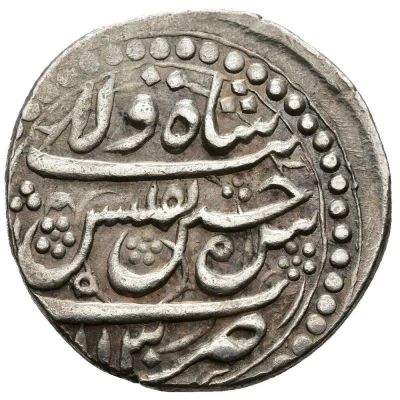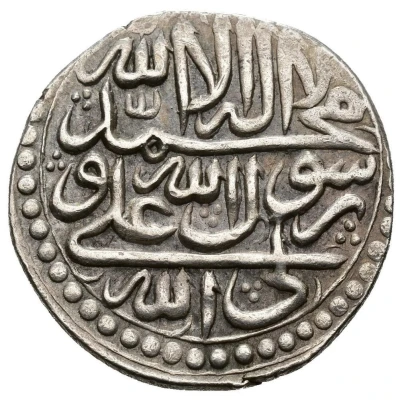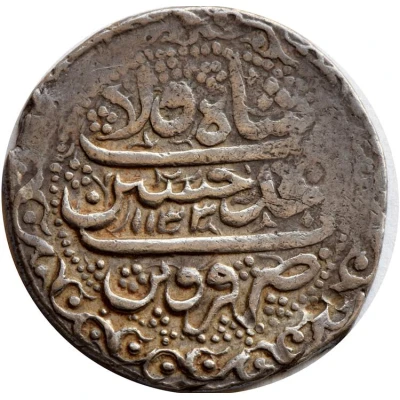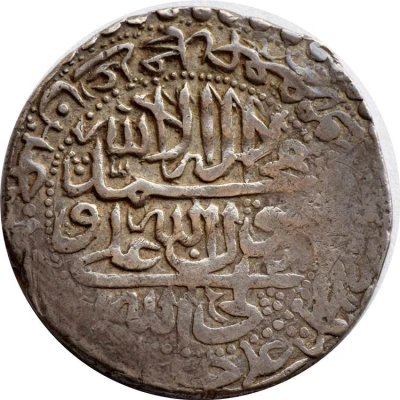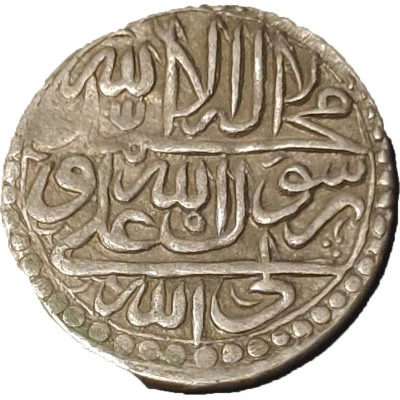
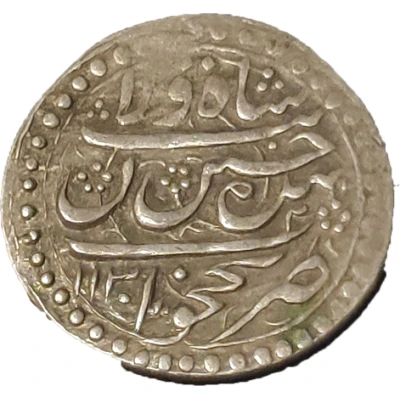

© robertmx (CC BY-SA)
1 Abbasi - Sultan Husayn I Type D; Nakhjavan
| Silver | 5.38 g | 22.5 mm |
| Issuer | Iran |
|---|---|
| Shah | Sultan Husayn I (1694-1722) |
| Type | Standard circulation coin |
| Years | 1130-1134 (1718-1722) |
| Calendar | Islamic (Hijri) |
| Value | 1 Abbasi (4) |
| Currency | Shahi (1501-1798) |
| Composition | Silver |
| Weight | 5.38 g |
| Diameter | 22.5 mm |
| Thickness | 2.3 mm |
| Shape | Round (irregular) |
| Technique | Hammered |
| Orientation | Variable alignment ↺ |
| Demonetized | Yes |
| Updated | 2024-10-05 |
| Numista | N#358560 |
|---|---|
| Rarity index | 95% |
Reverse
Mint name, date at lower left. The date can sometimes appear on the second line.
Script: Persian (nastaliq)
Lettering:
بنده شاه ولایت حسین
ضرب نخجوان
۱۱۳۰
Lettering (regular font):
بنده شاه ولایت حسین
ضرب نخجوان
۱۱۳۰
Unabridged legend:
bandah Shah wilayat
Husayn
zarb Nakhjevan 1130
Translation:
Line 1: Slave of the lord of friendship
Line 2: Husayn
Line 3: Struck at Nakhjevan <date>
Comment
From Album's Checklist:"The first type, pellets around the reverse, was struck 1129-1132, occasionally in 1133. The Imams types was struck 1132-1135, also 1131 at Qazwin. Further overlap may exist, perhaps due to the continued use of functional dies. Type D abbasis and some fractions show a great variation in calligraphy, legend arrangement and borders. Numerous variants were struck at Qazwin during the period 1130-1134
particularly in 1131), when Husayn moved his capital temporarily to that city. Many of these variants are artistically exquisite."
Interesting fact
One interesting fact about this coin is that it was minted during a time of great turmoil in Iran. The reign of Sultan Husayn I was marked by political instability, wars with neighboring countries, and economic difficulties. Despite these challenges, the coinage of this period remained consistent in its design and quality, reflecting the resilience and craftsmanship of the Iranian people.
